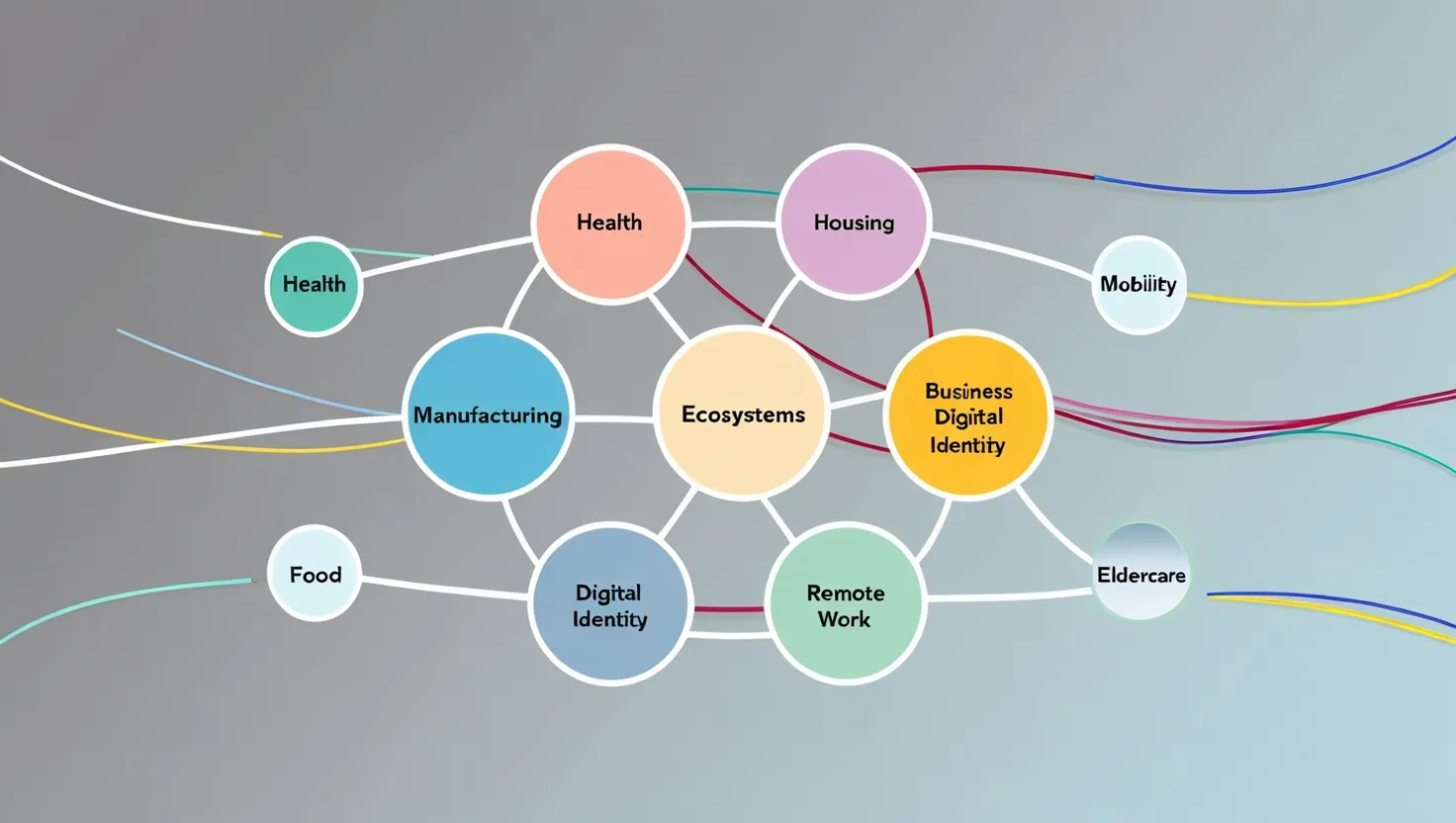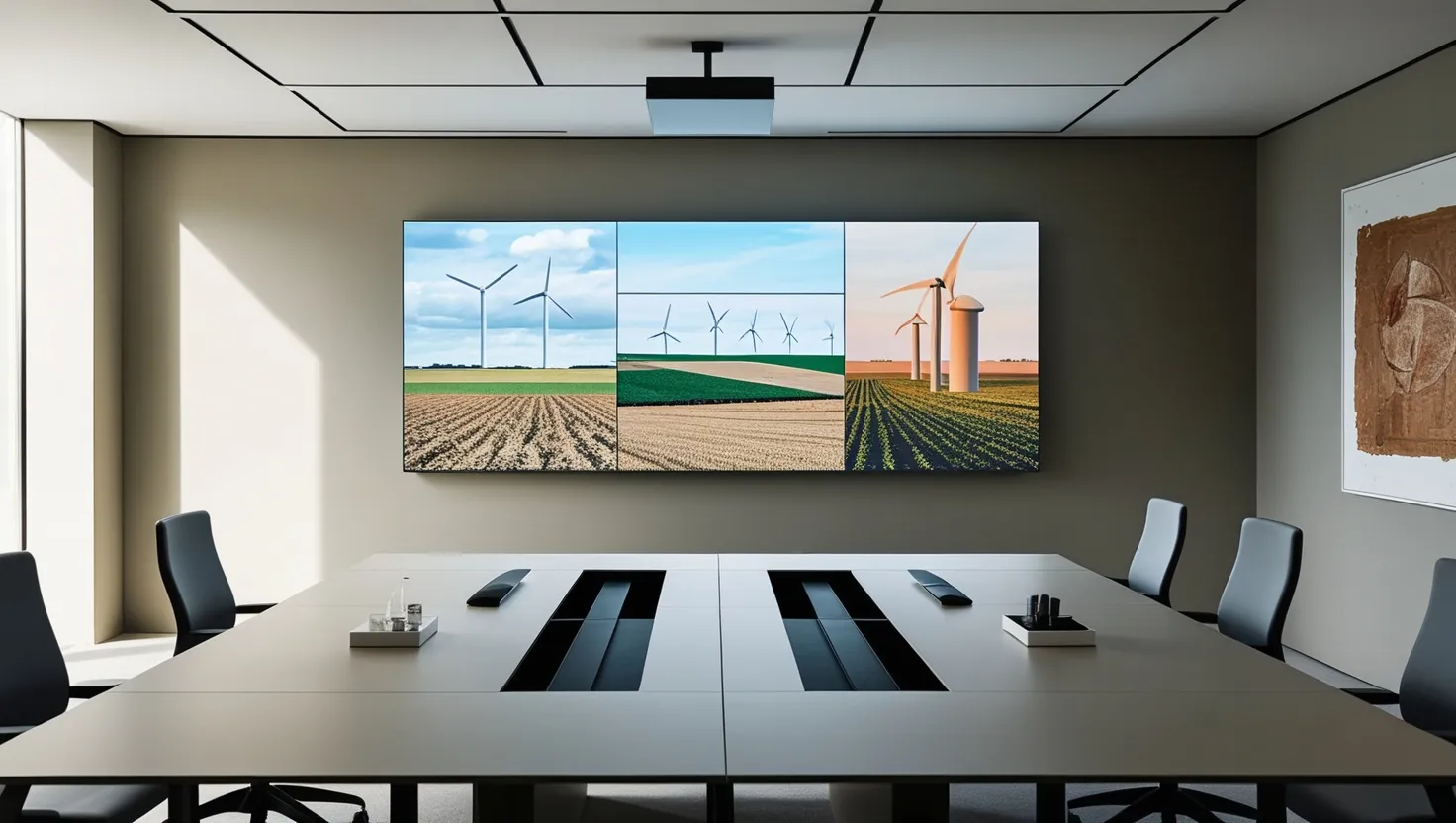The business landscape is undergoing a profound transformation. Traditional industry boundaries are blurring as companies form interconnected ecosystems to deliver more holistic solutions to customers. This shift is creating exciting new opportunities, but also disrupting established business models.
I’ve been closely studying these emerging ecosystems, and I’m struck by how they’re redefining entire sectors of the economy. Let’s explore eight of the most promising ecosystems that are reshaping industries and creating new forms of value:
Health and wellness is one area ripe for ecosystem integration. We’re seeing medical providers, fitness companies, nutrition experts, and mental health services coming together in novel ways. Imagine a seamless experience where your doctor, personal trainer, nutritionist and therapist all work in concert, sharing data to optimize your overall wellbeing. Companies like Apple and Google are positioning themselves at the center of these ecosystems with their health tracking platforms.
“The greatest wealth is health.” - Virgil
How might integrated health ecosystems change our relationship with wellness? Could they help prevent illness rather than just treating it?
The housing sector is another industry being reimagined through ecosystem thinking. Forward-thinking builders are partnering with renewable energy providers, smart home technology companies, and even urban farming startups to create sustainable living environments. These ecosystems aim to make homes not just places to live, but regenerative spaces that produce energy, grow food, and promote healthy lifestyles.
Mobility is evolving far beyond just transportation. We’re seeing the emergence of mobility hubs that seamlessly integrate various modes of transport with workspaces, retail, and logistics services. Companies like WeWork and Uber are exploring how to turn transit hubs into productivity centers. Imagine being able to hop off a train, grab a quick meeting in a private workspace, pick up your groceries, and have them delivered home - all in one interconnected mobility ecosystem.
Manufacturing is being revolutionized by circular economy principles. Materials science companies, manufacturers, and recycling firms are forming closed-loop ecosystems to eliminate waste and create more sustainable production models. Firms like Interface and Philips are pioneering these circular approaches.
“The greatest threat to our planet is the belief that someone else will save it.” - Robert Swan
How might circular manufacturing ecosystems change our relationship with consumption and waste?
Digital identity is becoming the cornerstone of our online lives, touching everything from finance to healthcare to e-commerce. We’re seeing the rise of identity verification platforms that serve as the trusted intermediaries across industries. Companies like Okta are positioning themselves at the center of these digital identity ecosystems.
Remote work has accelerated dramatically, spawning entire ecosystems to support distributed teams. Technology providers, property managers, and productivity services are coming together to create integrated remote work infrastructures. Imagine seamlessly shifting between home office, local coworking space, and company HQ - all supported by a cohesive ecosystem of services.
The aging population is driving the formation of eldercare ecosystems combining healthcare, housing, technology, and financial services. Companies are collaborating to create comprehensive offerings that support seniors through all stages of aging. How might these ecosystems change our experience of growing older?
Food security is an increasingly critical issue being addressed through ecosystem approaches. We’re seeing new collaborations forming between agricultural producers, food processors, distributors, and waste management firms. These ecosystems aim to create more resilient and sustainable food systems from farm to table.
“The destiny of nations depends on the manner in which they feed themselves.” - Jean-Anthelme Brillat-Savarin
How might integrated food ecosystems change our relationship with what we eat?
These emerging ecosystems are creating value in several key ways:
Cross-industry partnerships allow companies to expand their offerings and create more comprehensive solutions. By working together, firms can address customer needs more holistically than they could alone.
Data sharing within ecosystems enables better insights and more personalized services. When healthcare providers, insurers, and wellness apps share data (with proper privacy controls), they can deliver more tailored care.
Complementary offerings create virtuous cycles that benefit all ecosystem participants. In a sustainable housing ecosystem, energy-efficient appliances reduce power bills, increasing disposable income that can be spent on other ecosystem services.
Network effects make ecosystems more valuable as they grow. As more companies and customers join a digital identity ecosystem, it becomes increasingly useful for all participants.
The rise of these new ecosystems is attracting significant investment as firms jockey for position. Venture capital and corporate investment is flowing into startups operating at the intersection points between industries. Established companies are also investing heavily to defend and expand their roles in emerging ecosystems.
There are of course challenges to overcome. Regulatory frameworks designed for traditional industry boundaries will need to evolve. Data privacy and security take on even greater importance in interconnected ecosystems. And there are concerns about dominant players exerting too much control.
But the potential benefits are immense. These ecosystems have the power to deliver more holistic solutions to some of society’s most pressing challenges - from healthcare to sustainability to food security.
For business leaders, the implications are profound. Success will increasingly depend on a company’s ability to forge partnerships, share data, and create seamless customer experiences across ecosystem boundaries. Those who can position themselves at strategic control points within emerging ecosystems stand to reap outsized rewards.
“The best way to predict the future is to create it.” - Peter Drucker
What role do you see your company or industry playing in these emerging ecosystems? Are you positioned to thrive in this new landscape?
As these ecosystems continue to evolve, we’re likely to see further blurring of industry lines. The distinctions between healthcare provider, insurer, and wellness company may cease to be relevant. The categorizations of automaker, tech company, and urban planning firm may no longer apply.
Instead, we’ll increasingly think in terms of solution ecosystems addressing fundamental human and societal needs - health, shelter, mobility, sustenance, connection, security. The companies that thrive will be those that can transcend traditional industry mindsets and reimagine their roles within these broader ecosystems.
This shift requires a fundamental rethinking of strategy, partnerships, and value creation. It demands new approaches to data sharing, interoperability, and collaborative innovation. And it calls for leaders who can navigate complexity, foster trust, and align diverse stakeholders around shared objectives.
The business ecosystems of the future won’t just redefine industry boundaries - they’ll reshape how we live, work, and interact with the world around us. As they emerge and evolve, they offer immense opportunities to create value and drive positive change. The question is: are you ready to play a role in shaping them?






